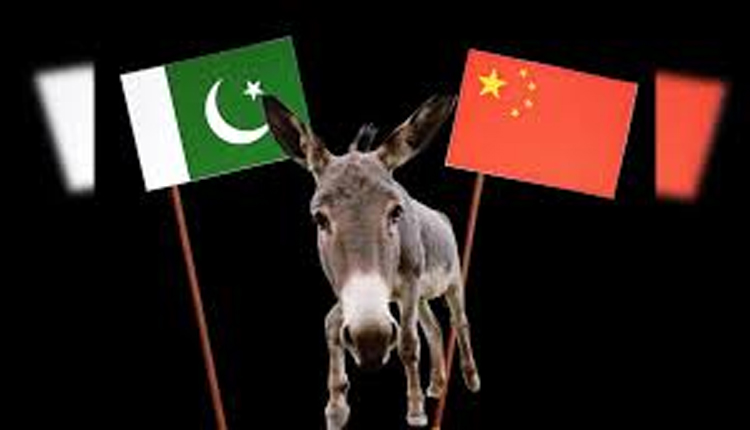Islamabad: In a quirky twist of global trade, China has inked a deal to import 200,000 donkeys annually from Pakistan, sparking curiosity and concern.
Despite boasting its own donkey herds, Beijing’s appetite for these sturdy beasts stems from a surging demand for ejiao—a gelatinous traditional medicine derived from donkey hides.
The agreement, confirmed by Dr Ikram of Pakistan’s National Food Security and Research Ministry, aims to pump millions into Islamabad’s coffers amid its economic woes, including a staggering $26.6 billion debt to China.
Pakistan, home to the world’s third-largest donkey population of 5.2 million, is ramping up exports with new slaughterhouses planned near Gwadar and Karachi ports. This follows Africa’s 2024 ban on hide shipments to China, thrusting Pakistan into the spotlight as Beijing’s go-to supplier. Yet, the boon comes with a sting: Local donkey prices have skyrocketed — from Rs 30,000 eight years ago to Rs 200,000 today — leaving poor cart-pullers like Karachi’s Salim Khan in dire straits, unable to afford replacements for their vital work animals.
Ejiao, also known as Colla Corii Asini or donkey-hide glue, is a cornerstone of Chinese medicine dating back millennia. Boiled from hides and blended with herbs, it’s prized for boosting blood circulation, halting bleeding, enhancing sleep, and improving skin quality — treating everything from anaemia to reproductive woes. The industry devours 6 million hides a year, fuelling an $8 billion market, but China’s declining donkey numbers — hit by overfarming— necessitate imports.
Beyond medicine, donkey meat delights palates in Hebei province, where ‘lǘròu huǒshāo’ burgers sizzle as street food staples in Baoding and Hejian. Critics warn the trade threatens Pakistan’s 36 million equine-dependent livelihoods, echoing global calls for sustainable sourcing. As China aids Pakistan’s recovery through loans, this “donkey diplomacy” underscores how ancient remedies reshape modern economies — and hardships.



Comments are closed.